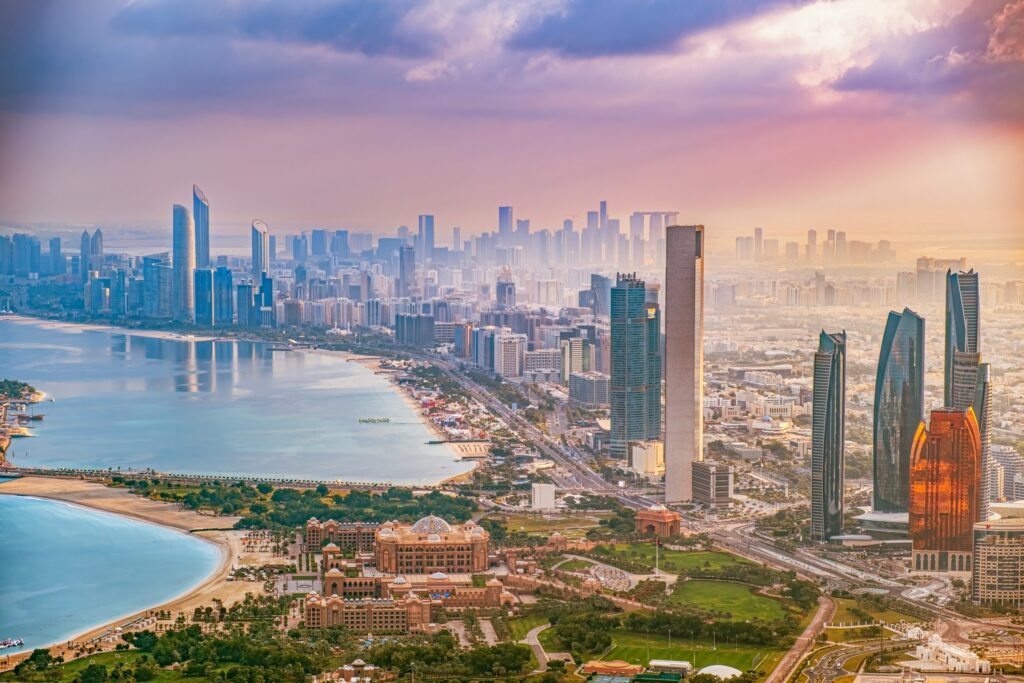Abu Dhabi’s real estate sector has evolved rapidly over the past decade, offering international investors and expatriates attractive opportunities to own property in the capital. One of the most important aspects for foreign buyers is understanding the property ownership laws, especially regarding freehold areas designated for expatriate ownership.
Whether you are considering buying a villa, apartment, or townhouse, this guide will help you navigate the legal landscape of property ownership in Abu Dhabi, ensuring a smooth and secure investment process.
What Are Freehold Areas in Abu Dhabi?
Freehold areas are specific zones designated by the Abu Dhabi government where expatriates and foreign nationals are allowed to purchase property with full ownership rights. Unlike leasehold properties, which are typically granted on long-term leases, freehold ownership gives you permanent and unconditional ownership of both the property and the land it stands on.
Key Freehold Areas for Expats in Abu Dhabi
Some of the prominent freehold communities where expats can buy property include:
- Saadiyat Island
- Yas Island
- Al Reem Island
- Al Raha Beach and Al Raha Gardens
- Al Ghadeer
- Al Jubail Island
- Al Shamkha and Al Falah
These areas offer a variety of property types including villas, townhouses, and apartments, catering to diverse preferences and budgets.
Property Ownership Laws for Expats
1. Eligibility and Ownership Rights
Foreign nationals are legally permitted to purchase and own properties in the designated freehold zones without restrictions on nationality or residency status. Upon purchase, expats hold 100% ownership rights, including the ability to sell, lease, or bequeath the property.
2. Registration and Title Deed
Property ownership must be officially registered with the Abu Dhabi Municipality and documented via the Title Deed system. The title deed confirms the buyer’s full legal ownership of the property. This is an essential step in securing your rights as an owner.
3. Madhmoun System (Advertising Permit)
In Abu Dhabi, property listings must comply with the Madhmoun permit system, a regulatory framework introduced to enhance market transparency and consumer protection. Buyers should ensure that any property they consider has a valid Madhmoun permit to avoid fraudulent listings.
4. Taxes and Fees
Abu Dhabi imposes no property taxes. However, buyers should expect to pay:
- A 2% property transfer fee (calculated on the purchase price), payable to the Abu Dhabi Municipality.
- Service charges or maintenance fees associated with the upkeep of community amenities and facilities.
5. Mortgages and Financing
Expats can obtain mortgage financing through local and international banks, subject to approval criteria. Typically, lenders require:
- Residency proof (some banks accept passports for non-residents).
- Minimum down payment (usually 20%-25%).
- Income and credit verification.
Mortgage terms and interest rates vary; consulting a mortgage advisor is advisable.
Important Legal Considerations for Expats
- Due Diligence
Always verify the property’s legal status, ownership, and any outstanding fees before finalizing a purchase. - Sales and Purchase Agreement (SPA)
The SPA is a legally binding contract between buyer and seller detailing terms of sale, payment schedules, and handover conditions. - Compliance with Local Laws
Foreign buyers must comply with all local laws, including those related to residency permits if applicable. - Inheritance and Wills
Expats should consider drafting a UAE-compliant will to protect their property rights and facilitate smooth inheritance.
Benefits of Owning Property in Abu Dhabi’s Freehold Areas
- Full ownership rights with no lease expiry
- Ability to rent or resell property freely
- Growing demand and capital appreciation potential
- Access to world-class amenities and communities
- Eligibility for UAE Golden Visa through property investment
How to Buy Property in Abu Dhabi’s Freehold Areas
- Research and Shortlist Communities
- Engage a Licensed Real Estate Broker
- Conduct Property Inspections and Verify Documents
- Secure Financing if Needed
- Sign the Sales and Purchase Agreement
- Register Property and Obtain Title Deed
- Complete Handover and Take Possession
Final Thoughts
Understanding the property ownership laws for expats in Abu Dhabi’s freehold areas is crucial for making a confident and secure investment. The government’s transparent regulations, coupled with the city’s booming real estate market, make Abu Dhabi an attractive destination for international buyers.
For personalized advice and access to exclusive listings in Abu Dhabi’s freehold communities, feel free to contact a trusted real estate expert who can guide you through every step.



